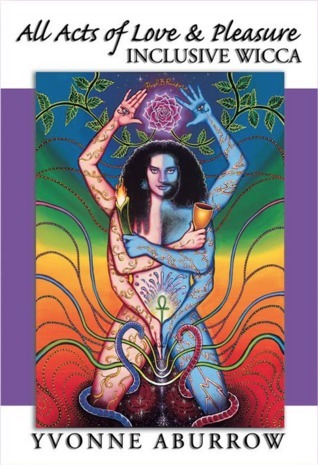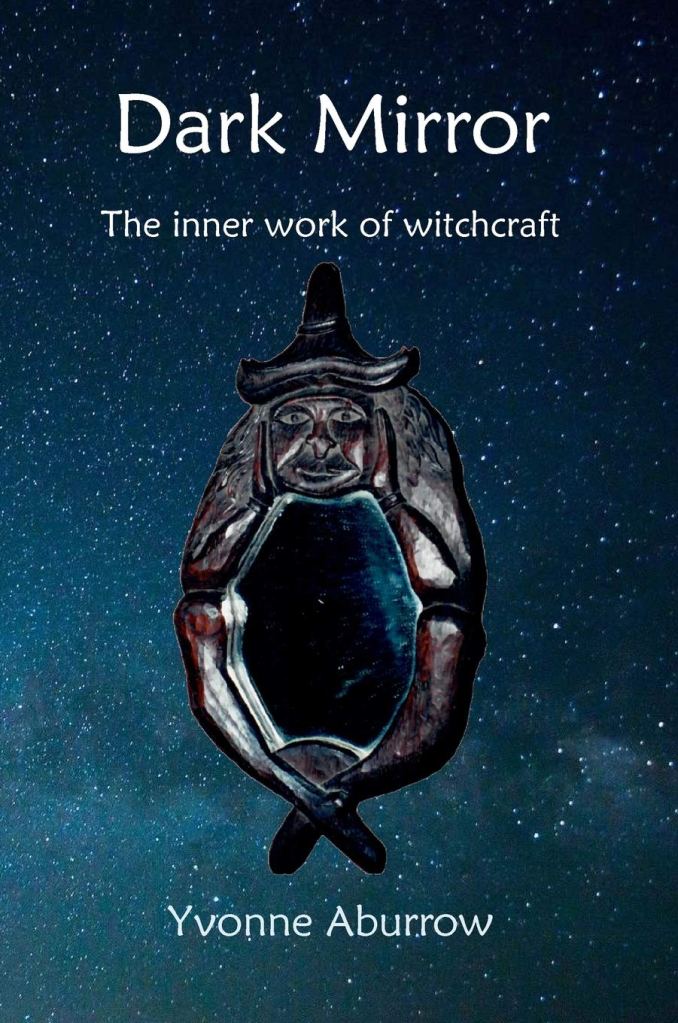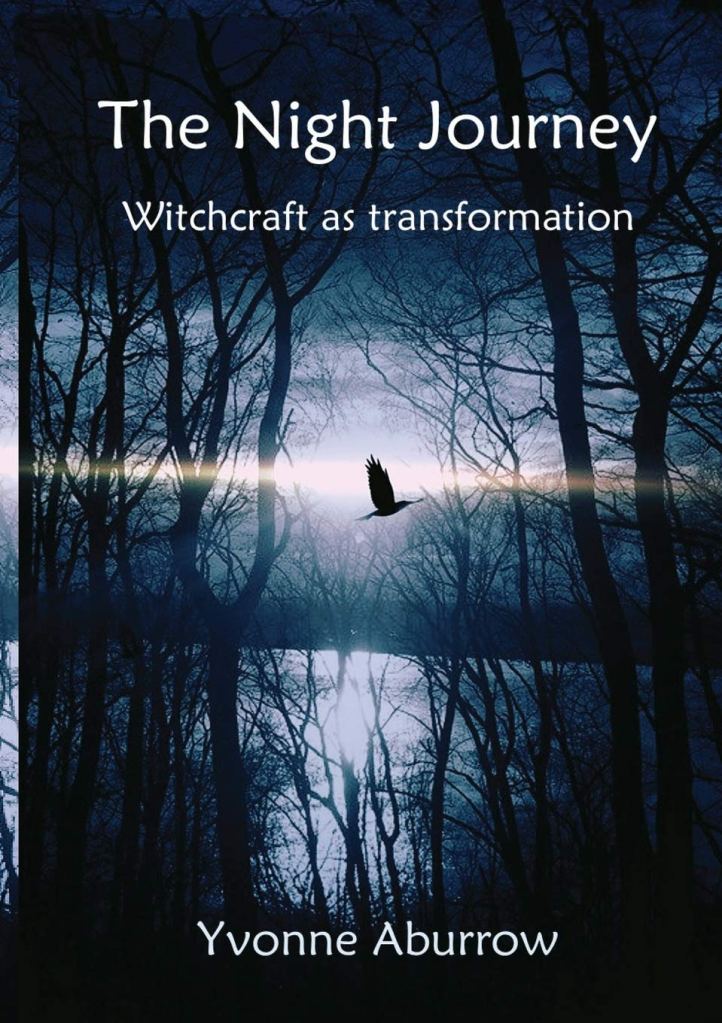The term theology was coined by Cicero in 45 BCE in his book, De Natura Deorum (“On the nature of the Gods”). The book presented three different perspectives on theology – the skeptical, the Epicurean, and the Stoic, and was presented in the form of a dialogue between the three viewpoints.
What can we learn from this? Pagan theology can be discursive and involve dialogue between different schools of thought. It can include skepticism and non-theism. It does not lay down dogma or doctrine, but is exploratory.
The word theology means “reasoning about the Divine”. There are various different ways of doing theology – there is apologetics (explaining your religion to a member of another religion or belief system); systematic theology (an attempt to lay out your theology in a systematic and logical way); philosophical theology (theology based on the ideas of philosophy); mystical theology (an account of the Divine based on direct mystical experience); postmodern theology (theologies that take account of postmodernist theory); popular theology (deriving theology from the ideas of the whole community, rather than from academic theologians only); and contextual theology (fitting your theology to the cultural context).
There are also many different styles and schools of theology, some of which are of interest to Pagans and have influenced the Pagan revival – these include process theology (the idea that the Divine is a process, changing and growing with humanity, not an entity); Transcendentalism (the idea that we can transcend all religious belief systems and encounter the Divine directly); feminist theology (theology informed by feminist ideas, including the Goddess); queer the0logy (theology informed by LGBTQ sexuality); and liberation theology (liberation from unjust economic, political, or social conditions).
Other ideas that might inform Pagan theology include feminism, queer theory, and deep ecology. We should also look to other religions within the same dharma-space, such as Hinduism, Taoism, Shinto, and indigenous religions.
Theology is not only the theory of what deities are; it is also about ethics – how we relate to ourselves and other beings. It also includes theodicy (explaining how evil occurs). It is the theory that underpins ritual practice. What does it mean to call the quarters? Why do Wiccans consecrate cakes and wine? Why do we cast a circle? Why do Heathens bless their ritual space with mead? Why do some Pagans make offerings to the deities? What is prayer? What is magic?
A Pagan theological conversation is happening, but many people are worried that it will involve the formulation of doctrine. I think this is very unlikely, especially given the wide variety of ideas in Paganism.
Hinduism has many different schools of thought, and none of them are branded as heretics; they co-exist peacefully. The word haeresis (from which heretic is derived) originally meant a school of thought, rather than a deviation from the “one true way” of orthodoxy.
It is more likely that we will settle for unexamined assumptions about how the world works if we fail to have a theological conversation. For instance, the gender binary is widely accepted among Pagans, and we need to have a conversation about the gender of deities, polarity, and how that affects sexuality. There have been a number of excellent articles relating to gender, sexuality, and polarity; but sometimes it feels as if queer Pagans are lone voices crying in the wilderness, and heterocentric Pagans proceed unabashed with their heteronormative agenda.
We need to talk about whether Paganism is a “nature religion”, a “fertility religion”, or something else. If Paganism is a nature religion, how come so many Pagans are so fixated on mythology instead of learning about the natural world?
Pagan theology has much to contribute to the interfaith theological dialogue. Because Pagan traditions are world-affirming, non-dogmatic, generally Nature-loving, erotic, mystical, queer-affirming, and feminist, we have an unique perspective to offer.
If you enjoyed this post, you might like my books.



“We need to talk about whether Paganism is a “nature religion”, a “fertility religion”, or something else. If Paganism is a nature religion, how come so many Pagans are so fixated on mythology instead of learning about the natural world?”
It should be a religion of everything, the whole world, nature and culture both, shouldn’t it? I think it was for the ancients.
LikeLike
Yes, it should be both nature and culture (but culture is not just deities). I would like to see it draw inspiration from science and philosophy too. And I don’t think the idea of a fertility religion is at all helpful.
LikeLike
I think we often refer to Pagan religions (Paganism is not a religion, it’s a group of religions) as “nature religions” because they tend to be more affirming of nature and of immanence theology than does mainstream Abrahamic religion. It’s a huge point of differentiation, and helps to give non-Pagans a starting reference point.
As for why Pagans are so fixated on mythology instead of learning about the natural world, I can think of two possible answers off the top of my head. One, somewhat uncharitably, is that it’s easier to discuss mythology and the gods because we don’t have even remotely the same level of undeniable solid information about Them that we do about the natural world. Thus, there’s a lot of room for opinion and personal gnosis, and so fewer places we can be told “you’re wrong.” Being right is a survival trait; we’re hardwired to be right because if we’re wrong and that rustle in the bushes *isn’t* my friend Og but a leopard, my genes don’t get passed on. The desire to be right leads us to feel threatened when we’re told we’re wrong, so avoiding situations where someone might know more than we do means avoiding that scary moment of finding out you were wrong. That’s why art appreciation is easier than calculus, and why people like to study things where they’re less likelly to be proven wrong.
The second reason relates to the first. *Because* we have a huge body of pretty solid knowledge about the world–some of it purely instinctive–there’s a desire to have a similar level of understanding of matters spiritual. Frankly, my personal gnosis of the gods is highly unlikely to reach the level of understanding that I had of the natural world by the time I was eighteen (or, quite possibly, five). That’s another reason why many Pagans will spend hours in meditation, ritual, and research, but not spend the same amount of time in studying physics. To say “When my level of understanding of the gods matches my understanding of gravity (or even of my husband), then I’ll do some deeper investigation of physics” is far from unreasonable.
LikeLike
Also, I do wish pagans weren’t so obsessed with gender. It’s not the only thing in the world. But we can lay the blame for the gender binary on the long reach of Wicca, which says that there is a Goddess and a God and that all goddesses are the Goddess and all gods are the God: actually erasing everything but gender.
LikeLike
Yes, the gender binary thing may be due to Wicca, but it is also very noticeable in Druidry. Not all Wiccans are duotheists, however; many are polytheists, many are pantheists. I’m a Wiccan and I don’t subscribe to the gender binary thing.
LikeLike
The gender obsession, I think, also has to do with the fact that in the 1970s and 1980s, Paganism was one of the few religions available that was trying to actively reimagine traditional gender roles. Our reimagining has become more creative, but since that was an important early concern (especially in American Paganism), it continues to be an important issue.
LikeLike
Ashley, I agree that some of the gender-focus can be laid at the door of Wicca, but that’s an oversimplified vision of the Craft. There are many Wiccans who are not Gardner-esque duotheists but polytheists, pantheists, panentheists, animists, monotheists, or some combination of the above. However, one of the basic underpinnings of Wiccan beliefs and practices is the awareness that F+M=Baby, and until very recently there weren’t nothin’ to be done about that. Even today, cloning is an uncertain procedure, so for pretty much anything more complex than a worm, that’s the rule. Since we are a fair bit more complex than a worm, the focus on M+F=Baby is not unreasonable ***as long as it isn’t the only thing we think about***.
Oh, and FWIW, I think the whole “all gods are one God and all goddesses are one Goddess, and there is but one Initiator” is hugely misinterpreted–possibly even by Ms. Valiente, who wrote it, but certainly by people who are still trapped in the overwhelmingly reductionist, monotheistic worldview into which they were probably born and which pervades the culture around us. But this is not the place for me to be posting what would be an entire article or blog post, so I’ll leave it at that.
LikeLike
Actually the quote “all the gods are one God and all the goddesses are one Goddess, and there is but one Initiator” was not written by Doreen Valiente at all, but by Dion Fortune, in her novel The Sea Priestess.
LikeLike
You might draw your approaches from those of Religious Education as more appropriate, within which theology becomes just one critical approach for as-if insiders. In Christian theology, theology inevitably becomes about handling dogma, as natural theology is never distinctive enough. RE includes the anthropological, spiritual experiences, phenomenological…
LikeLike
Hi Pluralist,
Have a look at Christine’s post on the differences between theology and religious studies, and the insider/outsider dilemma.
I would say that theology – as a process of thinking about how the divine interacts with the world – does not impose answers, it only proposes them. It is dogma that imposes answers, and religious education that goes about dinning those answers into the heads of unfortunate recipients. Religious studies (or study of religions, to give it a clearer name) is the broader anthropological and sociological enterprise that you are referring to.
Both Christine and myself have degrees in study of religions, but that is not what we are about here – we are not describing the social and cultural dimensions of Paganism (though those might well give us ideas for theological topics), we are proposing answers and posing questions; we are absolutely not propounding dogma.
LikeLike
“If Paganism is a nature religion, how come so many Pagans are so fixated on mythology instead of learning about the natural world?” THIS. Thank you. Been trying to figure this out myself for quite a while. Maybe it’s the Ceremonial Magick influence?
LikeLike
I think that some Pagans are simply more interested in or resonate more with the human parts of the natural world (“civilization”) rather than the non-human ones. This could be a strength rather than a weakness if we have mutual respect and appreciation for each other’s approaches. We’re not all called to the same work.
LikeLike
I’m appreciating the scope of this piece and the definitions offered. As a longtime eclectic Pagan I have studied lots of things, but traditional theology has only crossed my desk by implication (and childhood education, where it was often referred to but never explicated or examined). You’ve cleared some confusion for me, such as defining ‘apologetics’ (which, on the rare occasions when I heard the word, I had taken for a sort of shame-faced statement about the ‘bad stuff’ in the speaker’s religion). Several of the definitions you offer seem clear enough, though they define themselves in terms of themselves, which is not especially illuminating. Because of this, a couple of terms elude me: “Postmodern theology” takes account of ‘postmodern theory,’ but since I don’t have much familiarity with that term, I don’t know what you mean. “Transcendentalism” you define as “the idea that we can transcend all religions and encounter the Divine directly,” but it seems to me that several religions encourage us to encounter the Divine directly, not just Transcendentalists. And the label seems to me to mean something about the assumption that the Divine is somehow transcendent, ‘out there,’ rather than ‘in us and in everything,’ which is more my experience of encountering the Divine directly.
Then there is “we should look to other religions within the same dharma-space …” But wait, what is dharma? Is Paganism in the same space of daily practice as Hinduism or Buddhism? For many Pagans there is a lot to appreciate in the Eastern traditions. But the Hindus I know would not consider themselves Pagan (except, perhaps, in the sense that the Christians consider all us non-Christians to be Pagan except for the Jews). Is it appropriate for Pagans to consider themselves Dharmic?
LikeLike
I am planning to expand on some of these ideas in later posts, but for now…
The Transcendentalists did not make any statement about the transcendence or immanence of the Divine; as a movement they aimed to transcend specific religious practices. You are right that they were not the only group to advocate direct encounters with the Divine – but their ideas, especially about Nature religion, have influenced the Pagan revival.
Dharma-space – I should have expanded what I meant there; what I meant was that several religions seem to share a common world-view, and to be more compatible with each other than other groups of religions.
Postmodernism deserves a whole blogpost all to itself, but basically, modernism is the idea that everything can eventually be known and understood, and knowledge can be divorced from context. Postmodernism is the idea that all knowledge is situated in a particular context, and is incomplete, tangled and finite.
Thanks for picking up on these lacunae in my post. 🙂
LikeLike
> Dharma-space – I should have expanded what I meant there; what I meant was that several religions seem to share a common world-view, and to be more compatible with each other than other groups of religions.
This makes me think of Michael York’s effort to divide the theologies of the world’s religions into four categories. I take issue with some of what he does, and really like other parts of it, so it might be worth discussing further.
LikeLike
Excuse me! I just said the word theology means “reasoning about the Divine”. I should maybe have said it means that literally. If it was “reasoning about deities” it would be theoilogy. And I used the term “Divine” so as not to exclude goddesses.
LikeLike
that comment was in reply to a trackback from the post about Pagan Polytheism listed below.
LikeLike